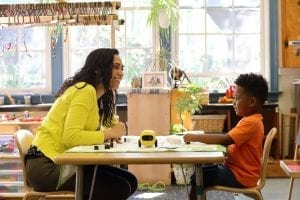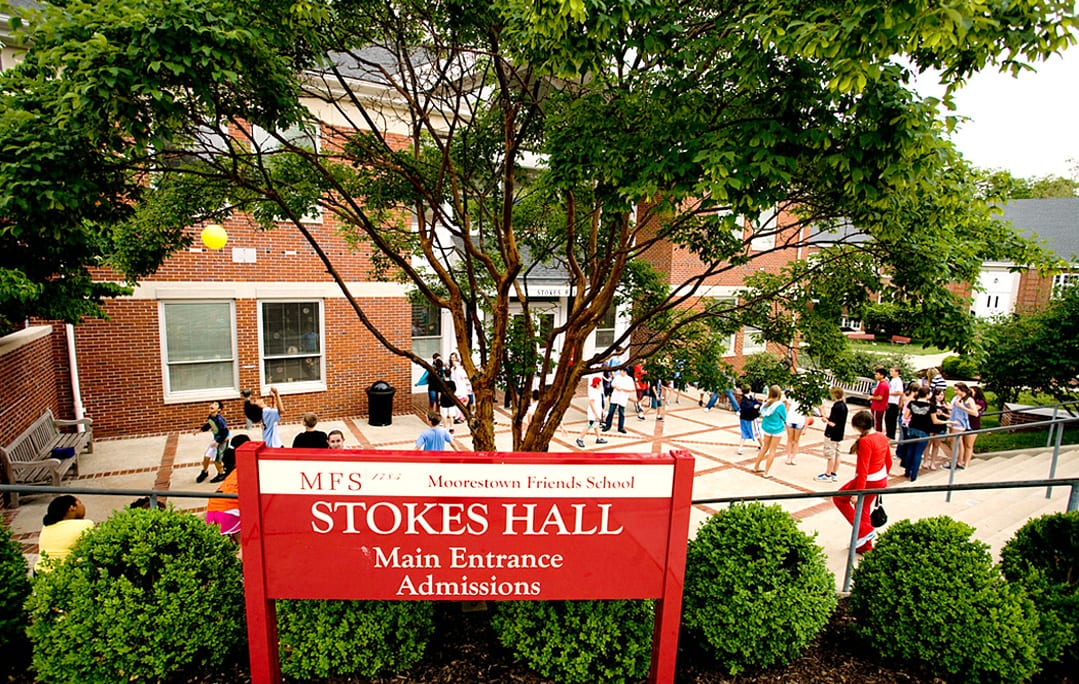Our Program
 The years of Preschool, Prekindergarten, and Kindergarten are among the most important in a child’s development. There is no time when young minds will grow and change more rapidly. There is no period more critical in shaping the ways that children learn and think, interact with others, and feel about school and themselves.
The years of Preschool, Prekindergarten, and Kindergarten are among the most important in a child’s development. There is no time when young minds will grow and change more rapidly. There is no period more critical in shaping the ways that children learn and think, interact with others, and feel about school and themselves.
Frequently Asked Questions
What does “educational excellence” mean for a 3-, 4-, or 5-year-old?
At many schools, the answer lies in acceleration — in short, presenting material from first, second, or third grade early. At MFS, we disagree with this approach. We believe the most excellent experience for young children is the most developmentally appropriate one.
Yes, preschoolers can be taught to sit in circle time for extended lessons, to complete work sheets, and solve math problems. No, this is not optimal use of their remarkable talents.
Young children are wired to explore. They learn through play. They learn in motion. And they should learn not only facts and skills, but also how to cooperate and communicate, to be part of a school community, to be resilient and resourceful.
Skilled teachers create opportunities for students to learn these lessons. They channel children’s natural curiosity. They help each student face challenges and experience successes.
How are children supported during their school day?
We consider the education of young children to be work of enormous importance. This is evident in the care we take in our staffing choices: This is a school where you will find experienced teachers with advanced degrees leading a class of three-year-olds.
Furthermore, in our early childhood classes, we maintain a ratio of one teacher to just 7 or 8 students. This level and quality of personal attention gets to the heart of what sets MFS apart — as do our outstanding facilities and robust array of special classes, all taught by qualified specialists. (These include art, music, science, Spanish, coding, physical education, technology, and library.) The Coding program, which debuted in 2015-16, provides students with valuable computational thinking, problem-solving, and teamwork skills. Moorestown Friends School is one of the only schools in the United States to offer a Coding program to all Lower School students – Preschool through Grade 4.
What does the classroom look like?
Of course, there is no single correct design for an early childhood classroom. However, the way a room looks does reveal something about the experience it is home to.
- If students’ days are spent exploring, the room should reflect this, with stations and destinations of many kinds—not just a carpet area for group lessons.
- If students’ creativity is given full chance to take flight, the room should teem with art—not perfect cookie-cutter coloring, but individual creations that reflect trial and error and each child’s own vision.
- If students are entering a world really worth discovering, the room should be filled with great children’s books, blocks to build with, and natural light—not cartoon characters and bright plastic toys.
- If children’s days are scheduled as they should be, the room should often be empty and silent. To thrive, young children need lots of time outside. Barring hurricane conditions, MFS kids play and learn outside more than once every day, whether it’s animal studies, monkey bars, or nature walks in the rain.
What happens when kids have a conflict?
This may not be the first question parents consider, but it relates to some of the most important life skills children will ever learn.
Of course, the easiest approach is for the teacher to simply impose order: “Stop it.” “Take turns.” “Quiet down.” However, this shortcut misses an important learning opportunity. Instead, we feel the teacher’s role is to help children build an effective set of skills for conflict resolution.
This often means asking questions rather than handing down judgments. It’s facilitating and modeling rather than law enforcement. And, frankly it’s a lot of work. But time invested in this way yields results of inestimable value, results you see clearly as children grow into their Middle and Upper School years.
How is a Quaker school different from other schools?
The educational program at Moorestown Friends School is built upon the Quaker Values of integrity, simplicity, peace, community, equality, and stewardship.
MFS is committed to developing students who have learned how to live an “examined life” characterized by a dedication to critical thought, openness to the Spirit, ethical development, and resilience. Learn more about how our Quaker history influences life at Moorestown Friends.


